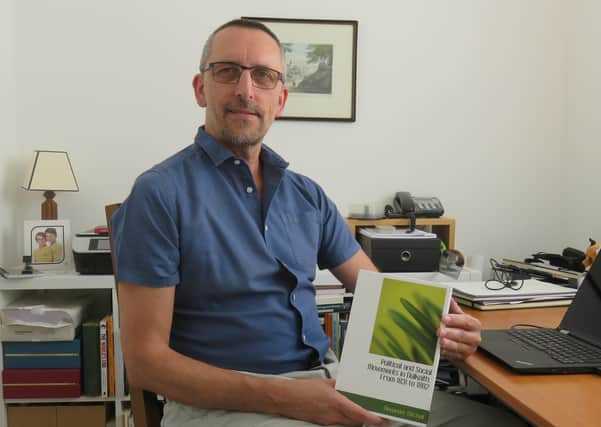Anti-slavery Midlothian Provost painting appeal


Derek Hanlon, who runs a local history facebook page called Dalkeith: Historic Town, has challenged Mr Smaill to oversee the restoration of a portrait of Dalkeith’s first Provost and anti-slavery activist, Alexander Mitchell.
At some time in the past, the painting sustained damage in the form of a large gash across the top corner of the book Mitchell holds and a large puncture on the former Provost’s right hand.
Advertisement
Hide AdAdvertisement
Hide AdThe portrait, which is now the property of Midlothian Council Library Headquarters, is believed to have been in this state of disrepair for more than 50 years and Derek claims to have the evidence to prove that fact.
Although Derek has long felt that a restoration of the portrait of this important figure in Dalkeith history is overdue, his recent request sits amid the debates raging across the world about statues, monuments and memorials which honour figures who profited from slavery.
In a move counter to this current trend, Derek argues that a restoration would help honour the work that Mitchell did as part of the anti-slavery movement in Dalkeith.
He said: “Many people may not realise that Dalkeith had an anti-slavery society and Alexander Mitchell, who became Dalkeith’s first Provost in 1878, was appointed joint secretary of the society along with the Rev David King.
Advertisement
Hide AdAdvertisement
Hide Ad“All that survives from the local society is a brief account written by Mitchell in his book ‘Political and Social Movements in Dalkeith’.”
Current Midlothian Provost Peter Smail told the Advertiser he “considers it an important painting by a leading Scottish artist of his time and is looking into ways to support the project”.
An article written by Dalkeith’s last Provost, the late David R. Smith, claims the town contained a band of merchants and artisans who participated in a wide range of activities intended to change political institutions and, inevitably, they were drawn into the struggle to abolish slavery in all its aspects.
At the inaugural meeting of the society on December 4, 1832, a committee was formed and a plan of action adopted.
Advertisement
Hide AdAdvertisement
Hide AdA public rally was arranged for February, 1833, at which a petition to Parliament was approved, as follows: “That slavery is a criminal infringement of the natural rights of mankind, and of the principles of the British constitution; that it outrages every feeling of humanity, and is directly opposed to the spirit and precepts of the Christian religion.”
In 2013, Derek led a successful campaign calling for the restoration of Dalkeith Burns Monument.
Comment Guidelines
National World encourages reader discussion on our stories. User feedback, insights and back-and-forth exchanges add a rich layer of context to reporting. Please review our Community Guidelines before commenting.